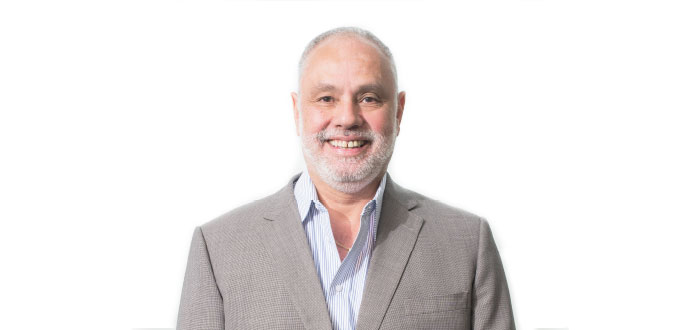Lito Ibarra “We Are Responsible for the Transformations That May Be Achieved Through the Internet”
29/10/2020

Rafael “Lito” Ibarra, winner of LACNIC’s 2020 Lifetime Achievement Award for his contribution to Internet development and deployment in Latin America and the Caribbean, was thrilled to receive his Award during the LACNIC 34 LACNOG 2020 Event.
Connected from his native El Salvador, this regional Internet leader expressed his gratitude for receiving the 20th LACNIC Lifetime Achievement Award, the first to be presented in an online ceremony due to the global pandemic.
“I feel very honored to be in the company of the other Award recipients, all of whom are dear friends and distinguished actors, pioneers and builders of our Latin American and Caribbean Internet community,” Ibarra said.
The Internet, which is the technology that allowed many of us to know each other, is also a key element in the lifestyle of millions of people across the planet, and since its conception the phenomenon has transcended the realm of technology, embracing and defining its own native core values: openness, inclusion, transparency, diversity, solidarity and generosity.
The winner of LACNIC’s 2020 Lifetime Achievement Award stressed that the Internet has enabled the democratization and accessibility of knowledge, and has distributed the responsibility for leveraging, propagating and benefiting from its potential. “We are all responsible for the transformations that may be achieved with this tool,” he added.
He noted that throughout his 51 years the Internet has contributed to change at an exponential rate. “New technological initiatives are constantly emerging, some of which are very positive and make up for protocol deficiencies, others are alternatives to current designs, and still others represent risks to the uniqueness and continuity of the Internet as we know it,” said Ibarra.
The Salvadoran expert added that the circumstance that today is limiting face-to-face meetings has served to accelerate the digital transformation, the intensive use of the Internet and the development of digital skills.
“Nowadays, at least four generations coexist, which some sociologists identify as baby boomers and generations X, Y and Z, of which the first two are digital migrants while the others are considered digital natives. The perceptions and attitudes of the different generations towards technology and, in general, towards the use and the way of interacting, deeply mark the other aspects of society, the economy and the development of companies and nations,” said Ibarra.
He stressed that not all people, especially many young people, appreciate the full extent and scope of the possibilities offered by the current degree of Internet connectivity. “There lies another challenge for us all: to achieve a common vision of appropriate evolution and progress, regardless of, and supported by, the variety of conceptions, attitudes, ages and philosophies of life,” claimed the winner of the 2020 Lifetime Achievement Award.
He placed special emphasis on the creation of Casa de Internet for Latin American and the Caribbean, which represents the work of several organizations and many people whose work and dedication strive for a better Internet within the region. “ICANN, LACTLD, the Internet Society, RedCLARA, LAC-IX, eCom LAC, ASIET, ALAI, and LAC-ISP share a physical work space with LACNIC; they also maintain historical ties and similar visions, each based on their own perspectives, spheres of action and the communities they serve. This synergy is special and unique to our region,” said Ibarra.
In closing, he reiterated his commitment to work from any role he might have, seeking the greatest common good, even if it is not always easy to identify. “Likewise, I encourage the thousands of colleagues and friends in the Caribbean and Latin America to continue to raise the bar for their goals, seeking to connect and promote a profitable, productive, free and ethical use of the Internet,” he concluded.